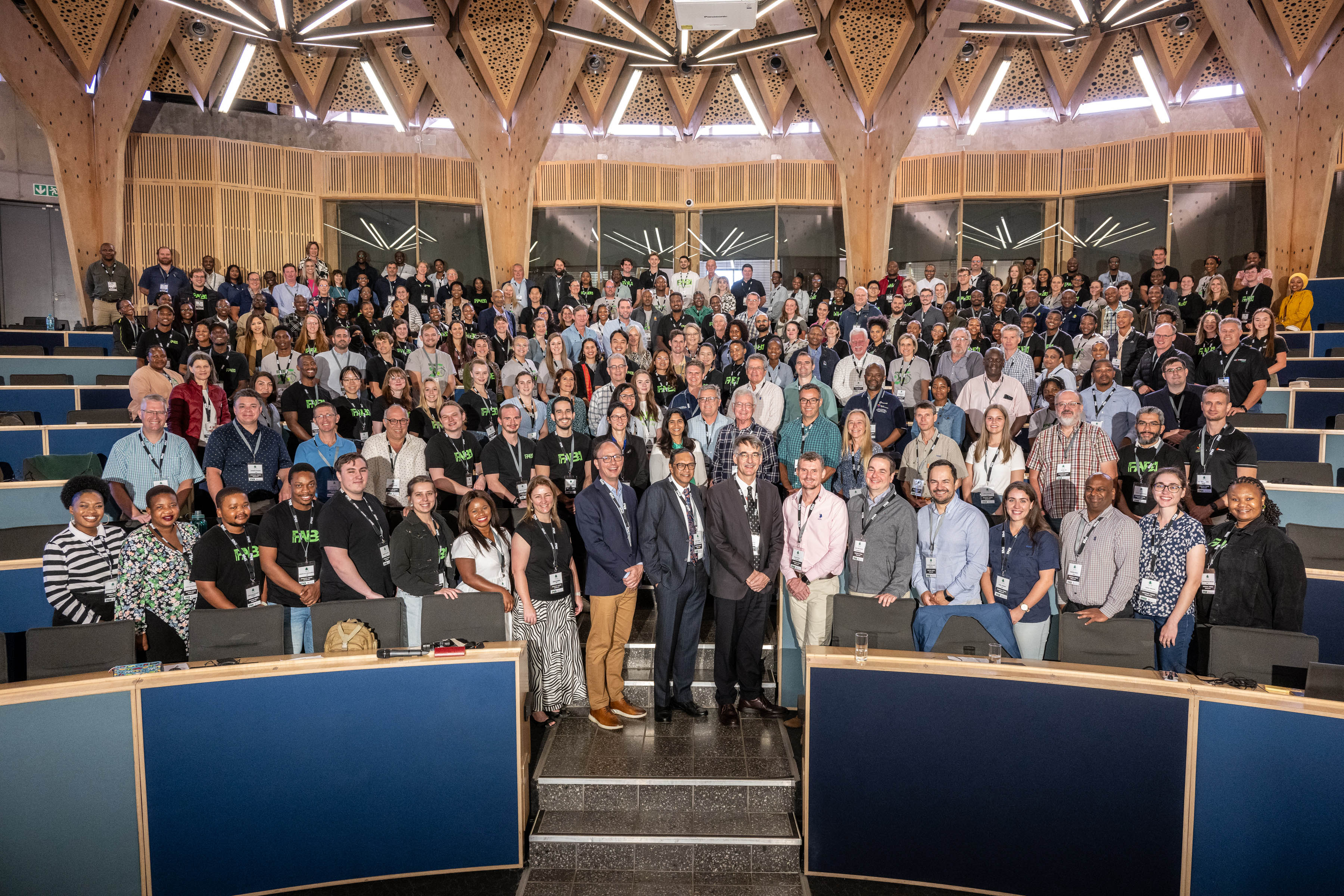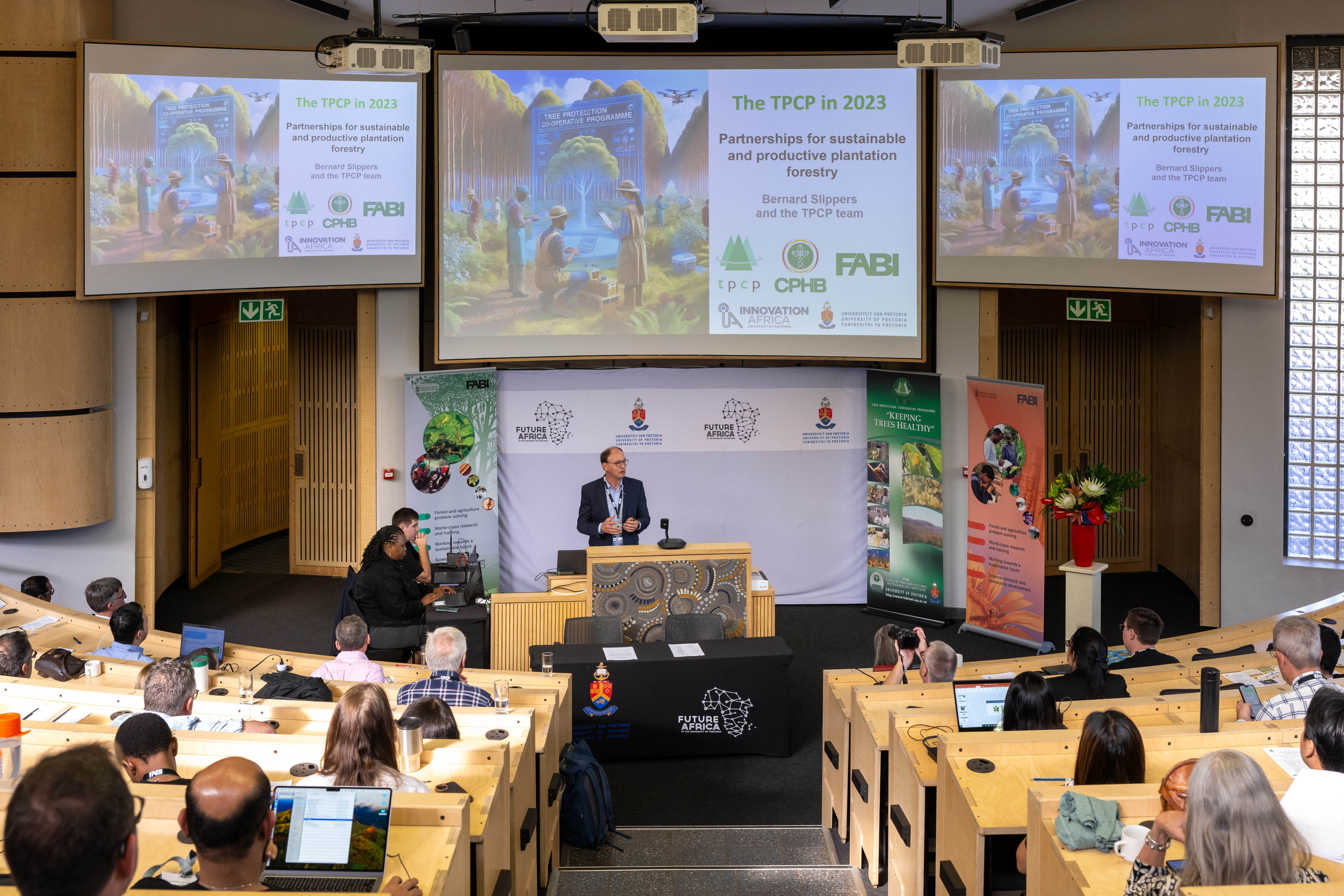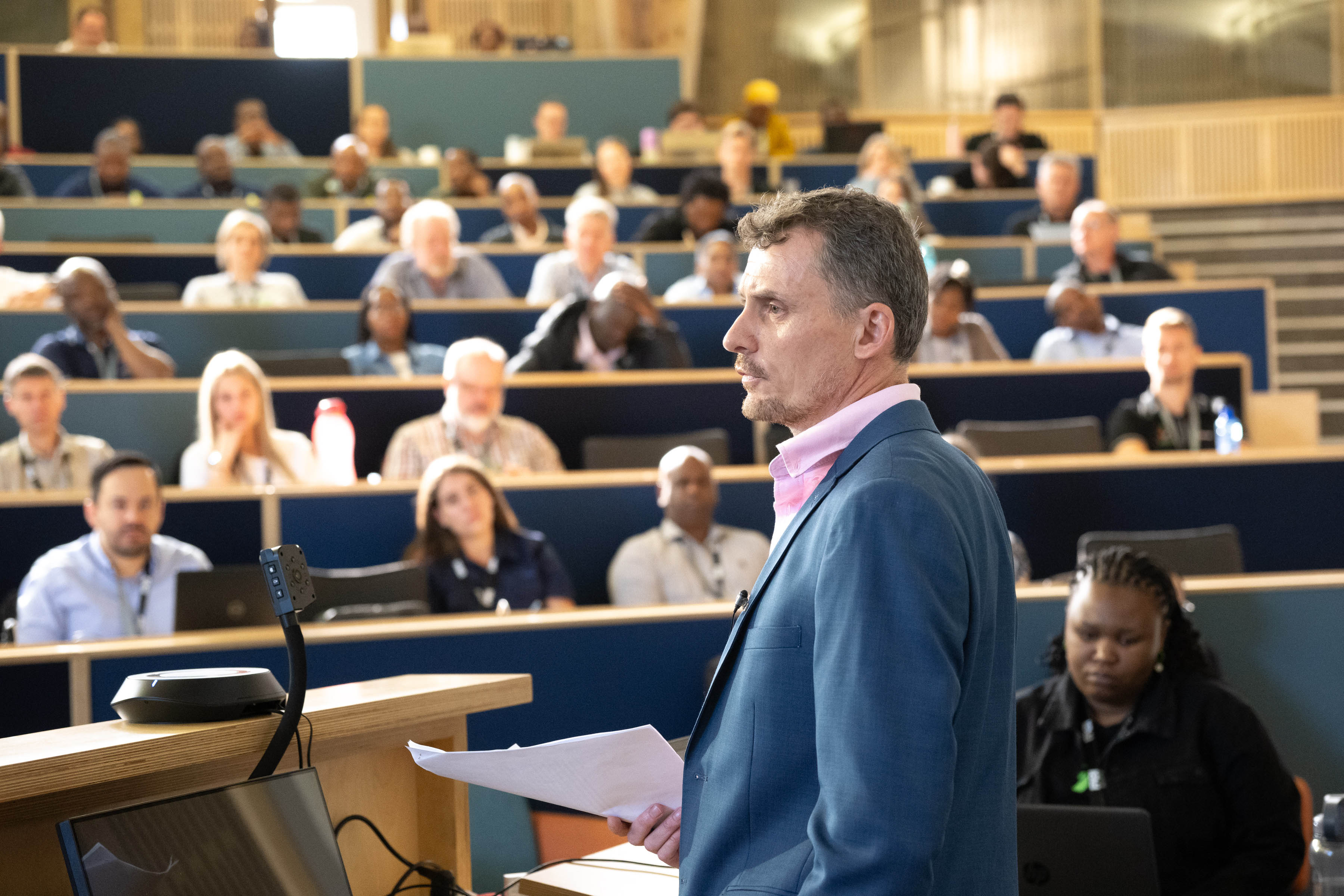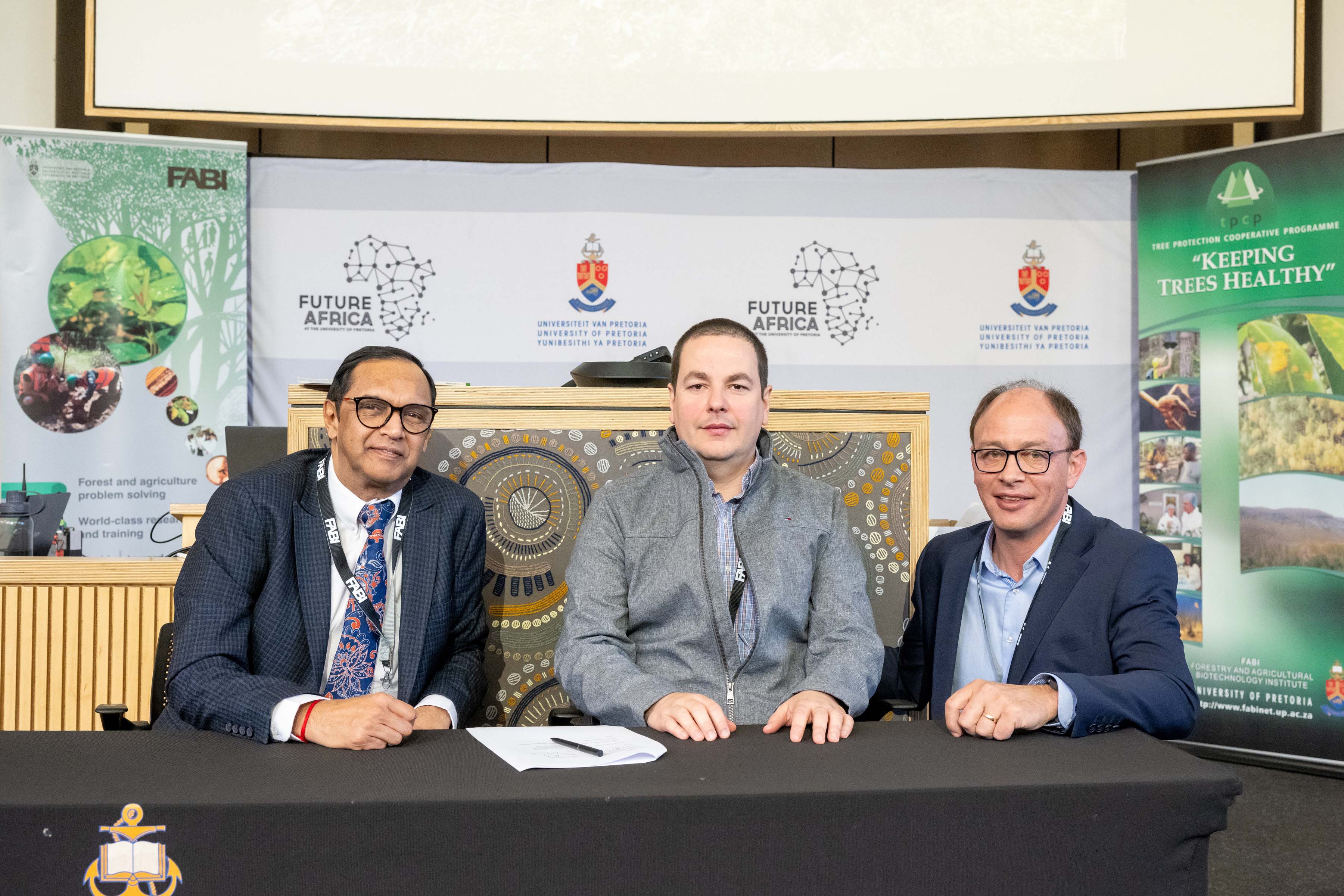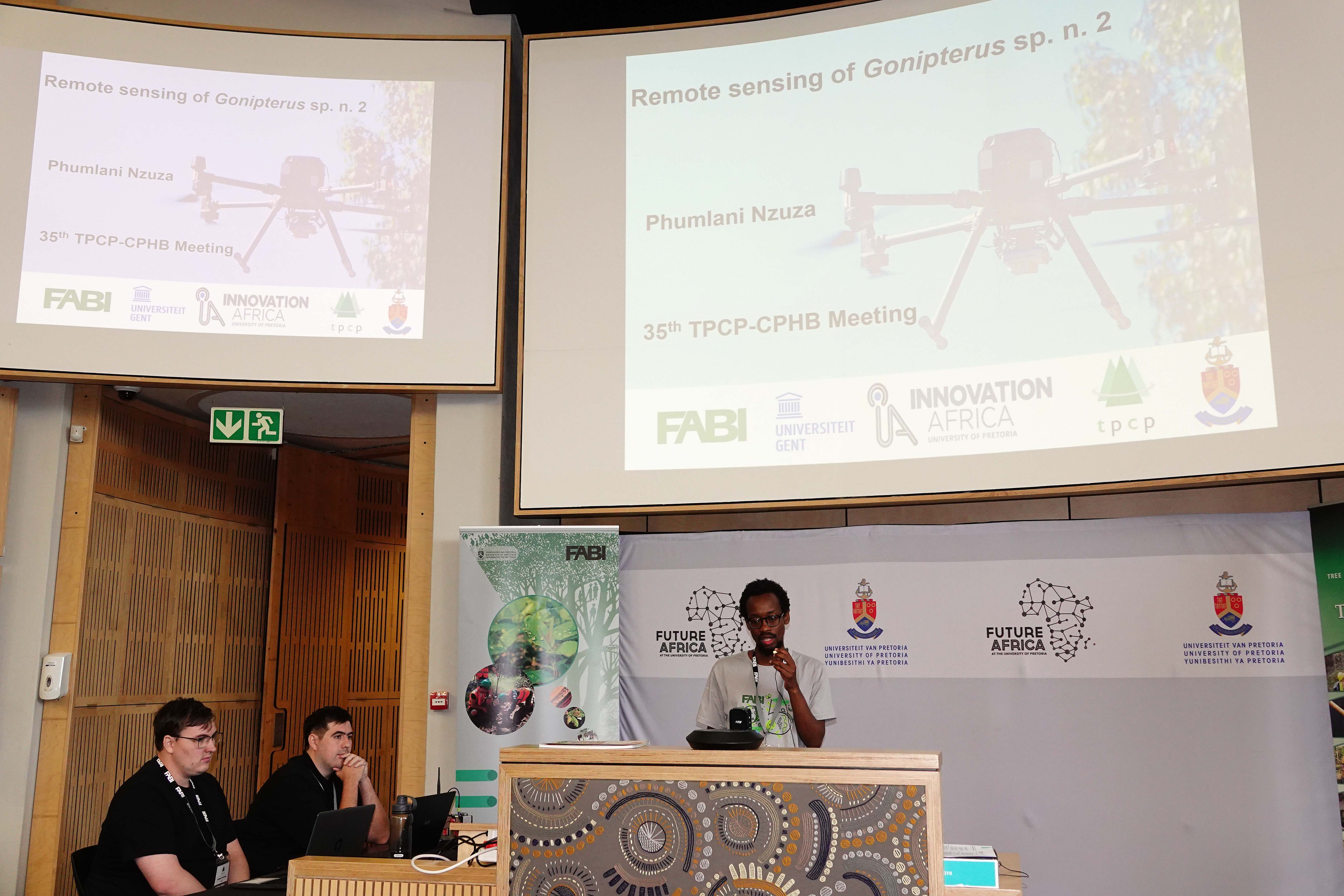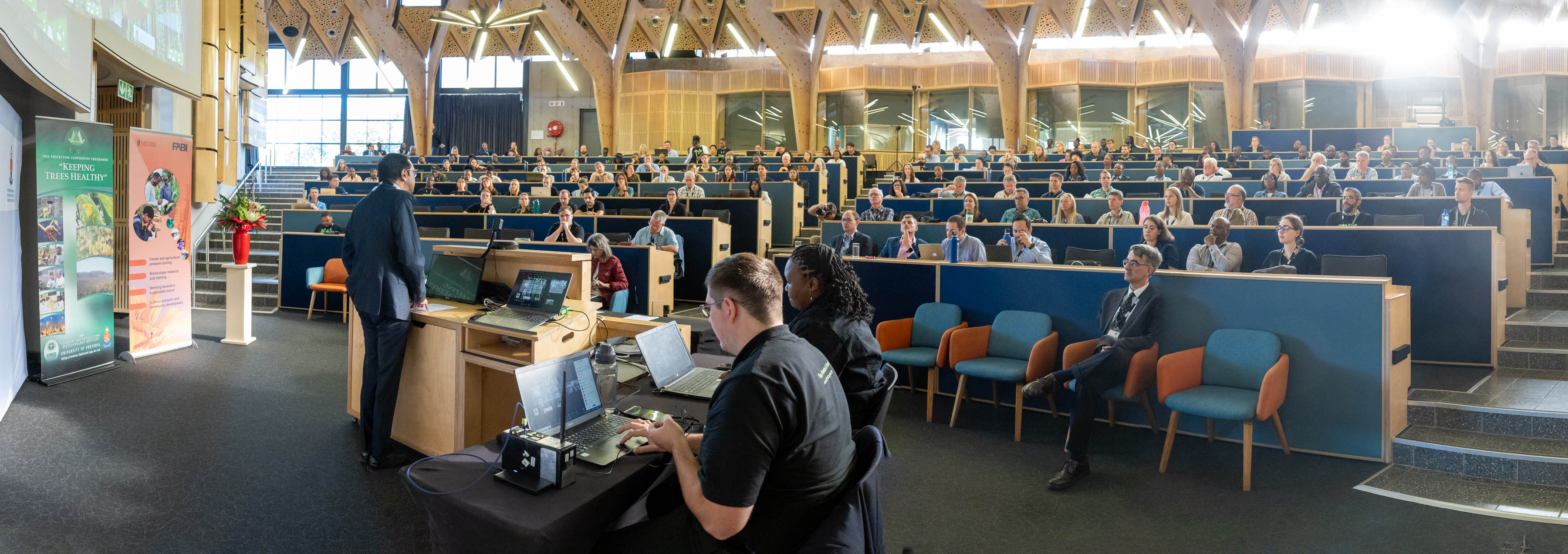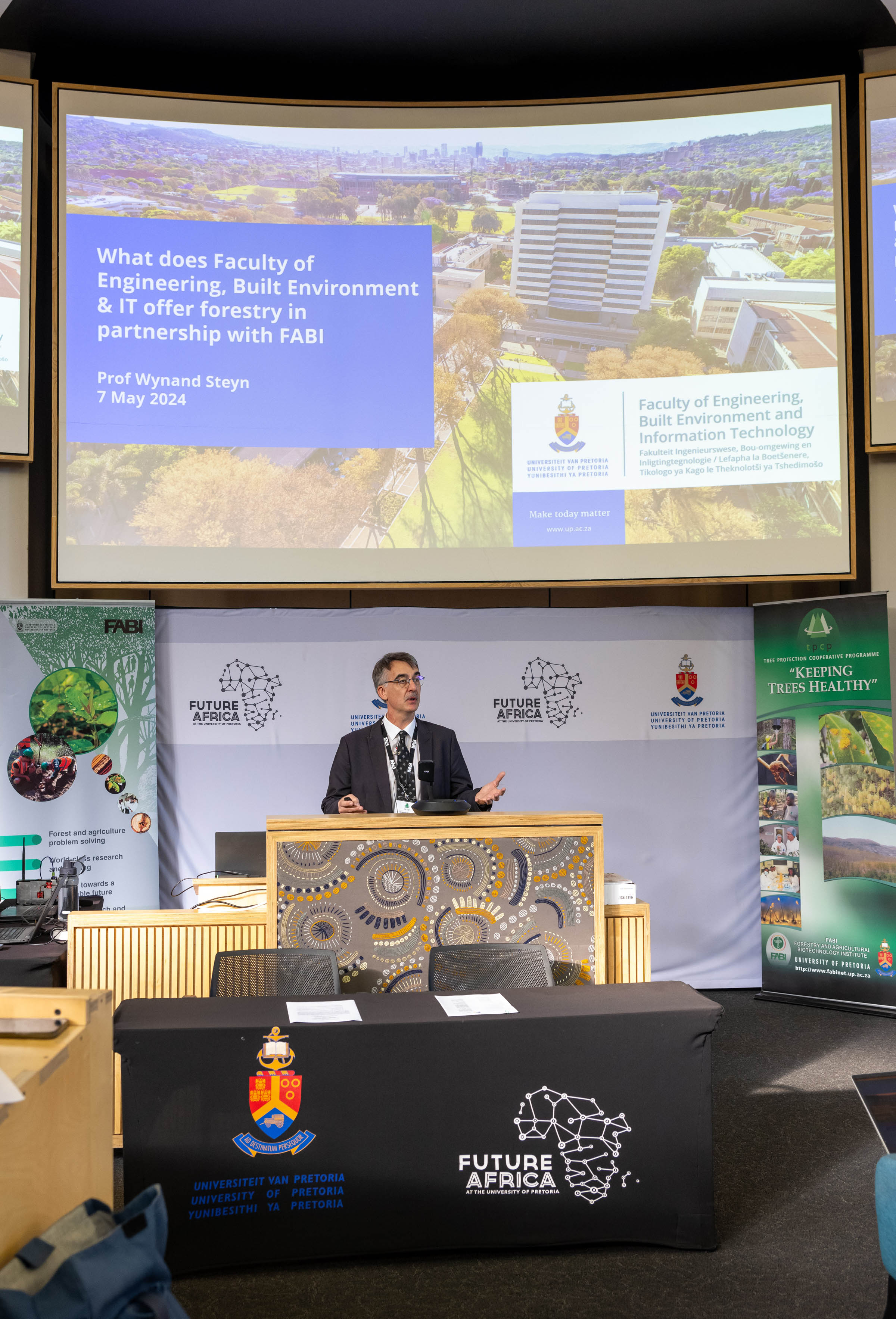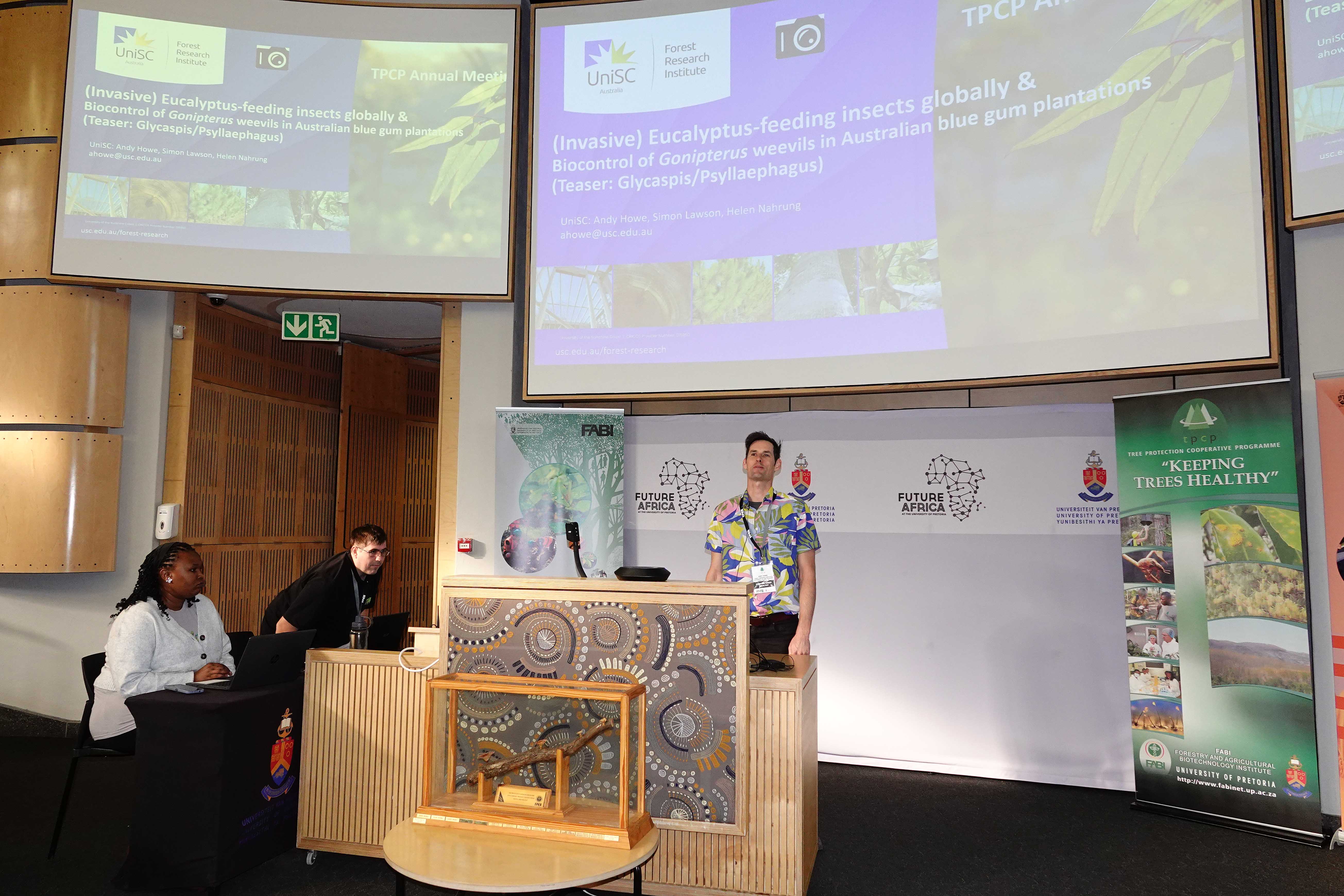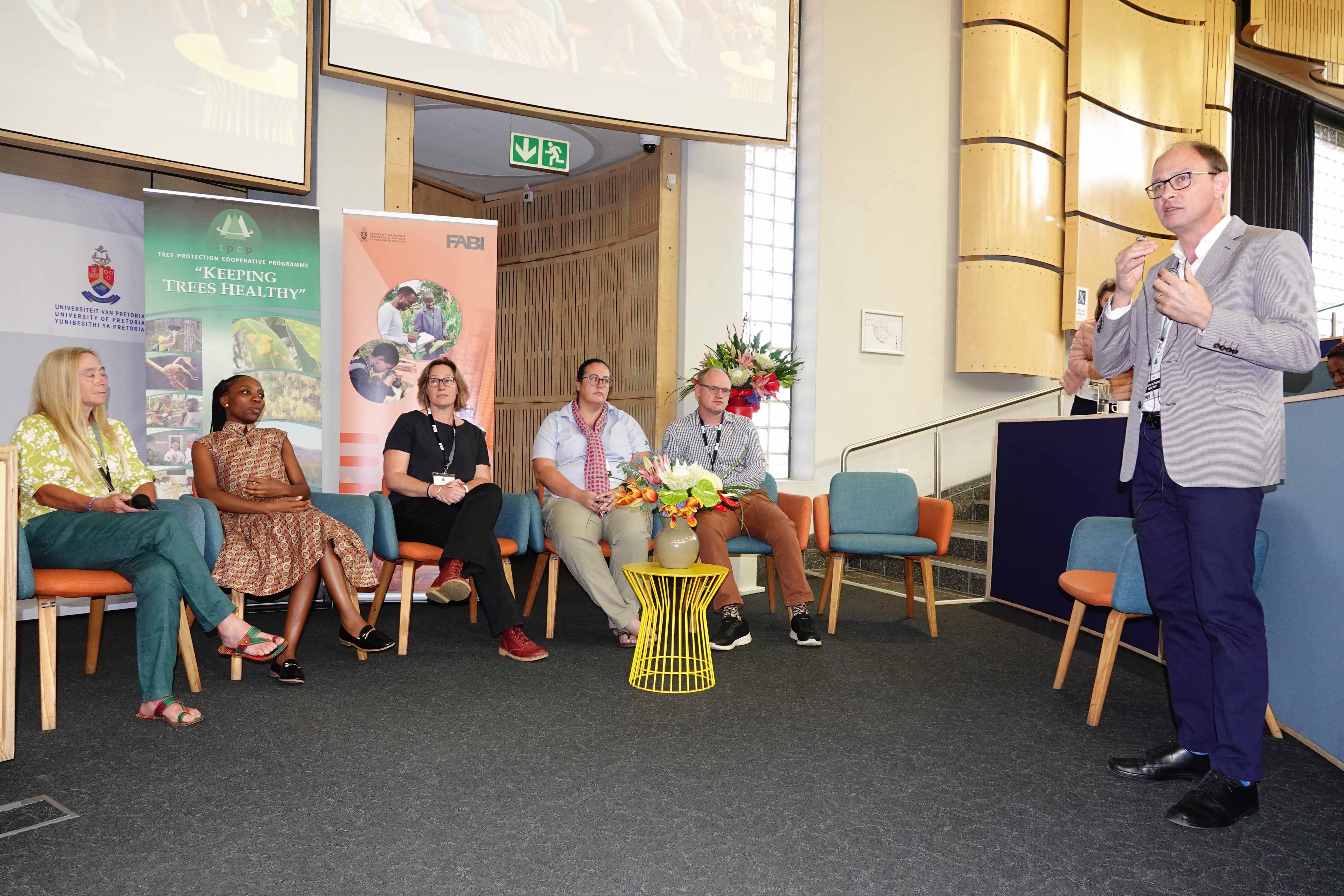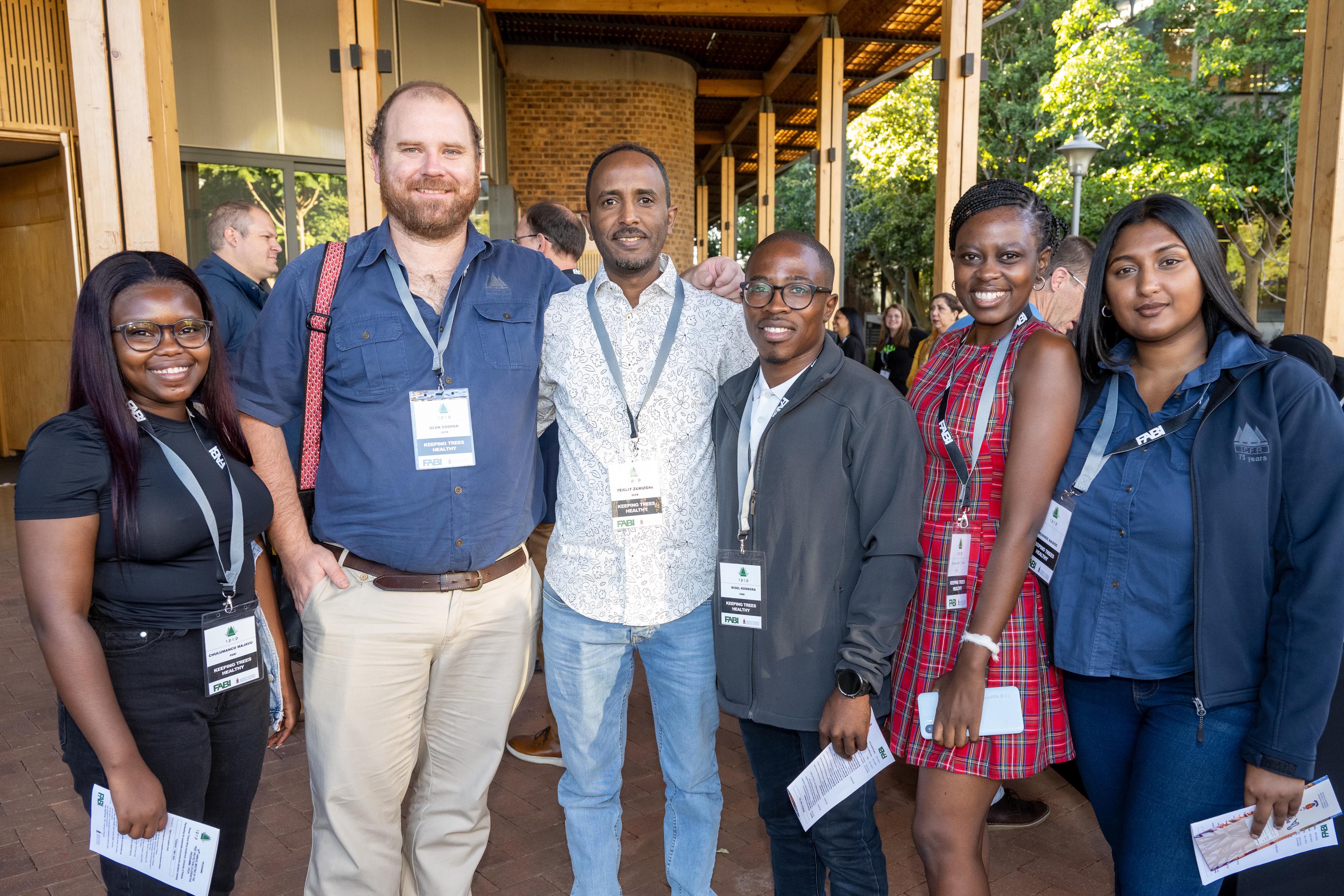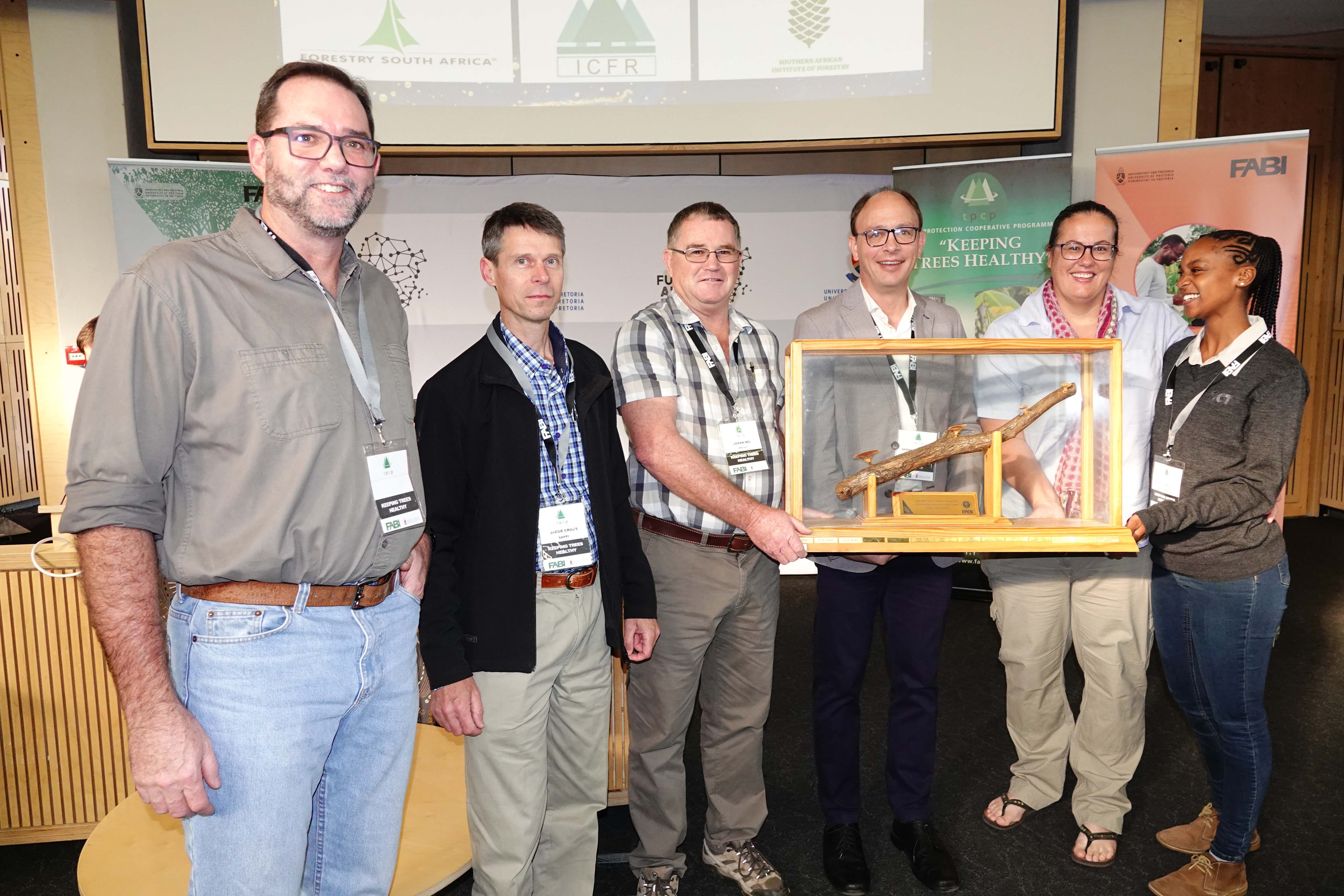The power of partnerships demonstrated at #TPCP2024 2024-05-13
The Tree Protection Co-operative Programme (TPCP) in FABI celebrated its 35th Annual Meeting at the University of Pretoria’s (UP) Future Africa Campus on 7-8 May. Hosted as a hybrid event, this year’s symposium saw more than 270 people from 13 South African forestry companies, two government ministries, three industry bodies and eight academic institutions attending in person, as well as numerous online-participants from around the globe. This year’s theme “Partnerships for sustainable and productive plantation forestry” is apt for this strong, long-term partnership between the South African forestry industry and academia that has seen the programme grow from strength to strength and become globally-relevant and -respected. The event also saw the celebration of three MoUs with international partners for research partnerships. The symposium had six sessions with topics that clearly showed the breadth of FABI’s collaboration with partners globally to “keep trees healthy”.
Reflecting on the past 35 years, FABI Director Prof. Bernard Slippers noted how the programme had grown, but also how it has changed to embrace transdisciplinary research opportunities and the advantages these partnerships hold for the forestry industry. In his welcome address, University of Pretoria Vice-Principal, Prof. Sunil Maharaj, said it was an honour for the University to host the TPCP symposium and with such a diverse international audience. He stated that the programme was well set to take the agenda of research and innovation forward in Africa and beyond. The opening address by the Dean of UP’s Faculty of Engineering, Built Environment and IT, Prof. Wynand Steyn, explained how the Faculty of Engineering and the TPCP (and FABI) have built a strong partnership to drive technological solutions for the forestry and agricultural industries. The CEO of York Timbers, Mr Gerald Stolz delivered a keynote address on the state of forestry in South Africa. He said that South Africans remain resilient and solution-driven in a challenging market. He stressed that collaboration is important for the forestry industry’s resilience and growth and gave examples of the success of such collaborations that include pest and disease management, tree breeding, and fire detection and fighting.
Closing the first session, FABI and TPCP Director, Prof. Bernard Slippers reflected on the huge impact the TPCP has made in the South African forestry industry over the past 35 years – but also on the numerous challenges and exciting opportunities going forward. He explained that big data is a complex challenge but, while new technologies, including AI, provide powerful tools to deal with this challenge, partnerships are required to make the most of these tools. The Information Hub is one example of such a tool, growing from a small in-house tool to now serving more than 1100 users, including a growing number of international users. The development of high throughput, rapid and accurate diagnostics also presents important opportunities for the forest industry in combatting pests and diseases. But all these exciting opportunities rely on networks of expertise and teamwork. The TPCP has a long and successful track record of establishing and running such collaborative partnerships.
Several leading international researchers again attended this year’s meeting and presented on their work. Camcore Director, Prof. Juan José Acosta (North Carolina State University), signed an MuU with the TPCP to enhance collaboration with this global consortim on issues of pest and disease in forestry. In his presentation he outlined the value of Camcore to its international partners in tree breeding and Enviromics (the matching of sites with plantation tree species) in aiding the forestry industry to meet the challenges of climate change. FABI also signed another MoU between BiCEP (Biological Control of Eucalyptus Pests) – funded by the Australian Centre for International Agricultural Research (ACIAR) - represented by Prof. Simon Lawson of the University of the Sunshine Coast, the TPCP and Dr Agena Tanga of the Ethiopian Forestry Research to establish a five-year tree pest monitoring programme in Ethiopia.
Prof. Diana Six from the University of Montana in the USA, spoke on how endophytes and mycorrhizae can help confer resistance to disease in Pines in a fascinating presentation. Entomologist Dr Andy Howe (University of the Sunshine Coast, Australia) presented on the patterns of movement of insect pests of Eucalyptus around the world, as well as on parasitoid-host interactions for the enhancement of biological control of pest insects in Eucalyptus plantations.
Presenters and visitors from other South African universities included Prof. David Drew (Stellenbosch University) who spoke about the opportunities for research collaboration at the newly-established research plantation, the IMPACT Open Air Laboratory. Long time-collaborator from Dr Ilaria Germishuizen also gave an update on the strong ICFR-FABI links around GIS, data science and remote sensing for plantation health.
Two lively panel discussions addressed topics of relevance to the TPCP and forestry industry. The first addressed “partnership opportunities for sustainable and productive forestry” with panellists Dr Ronald Heath (Forestry SA), Prof. Martin Hill (Rhodes University), Dr David Drew (Stellenbosch University), Dr Yolandi Ernst (University of the Witwatersrand), Prof. JJ Acosta (NC State University and Camcore) and Prof. Simon Lawson (University of the Sunshine Coast).
The second discussed “advancing local biological control options in SA forestry” with panellists Prof. Brett Hurley (University of Pretoria), Prof. Jolanda Roux (Sappi), Ms Izette Greyling (Mondi), Ms Jacqui Meyer (TIPWG) and Ms. Elelwani Ramabulana (DALRRD).
Thirty-two FABI researchers and students also presented talks with several TPCP students presenting their research in five-minute speed talks. More information on these can be found on the symposium programme.
The hotly contested quiz, hosted before the dinner on Tuesday evening, saw partnership and collaboration winning the day when a combined team from Mondi, Sappi, NTE, NCT and TWK taking the honours.


